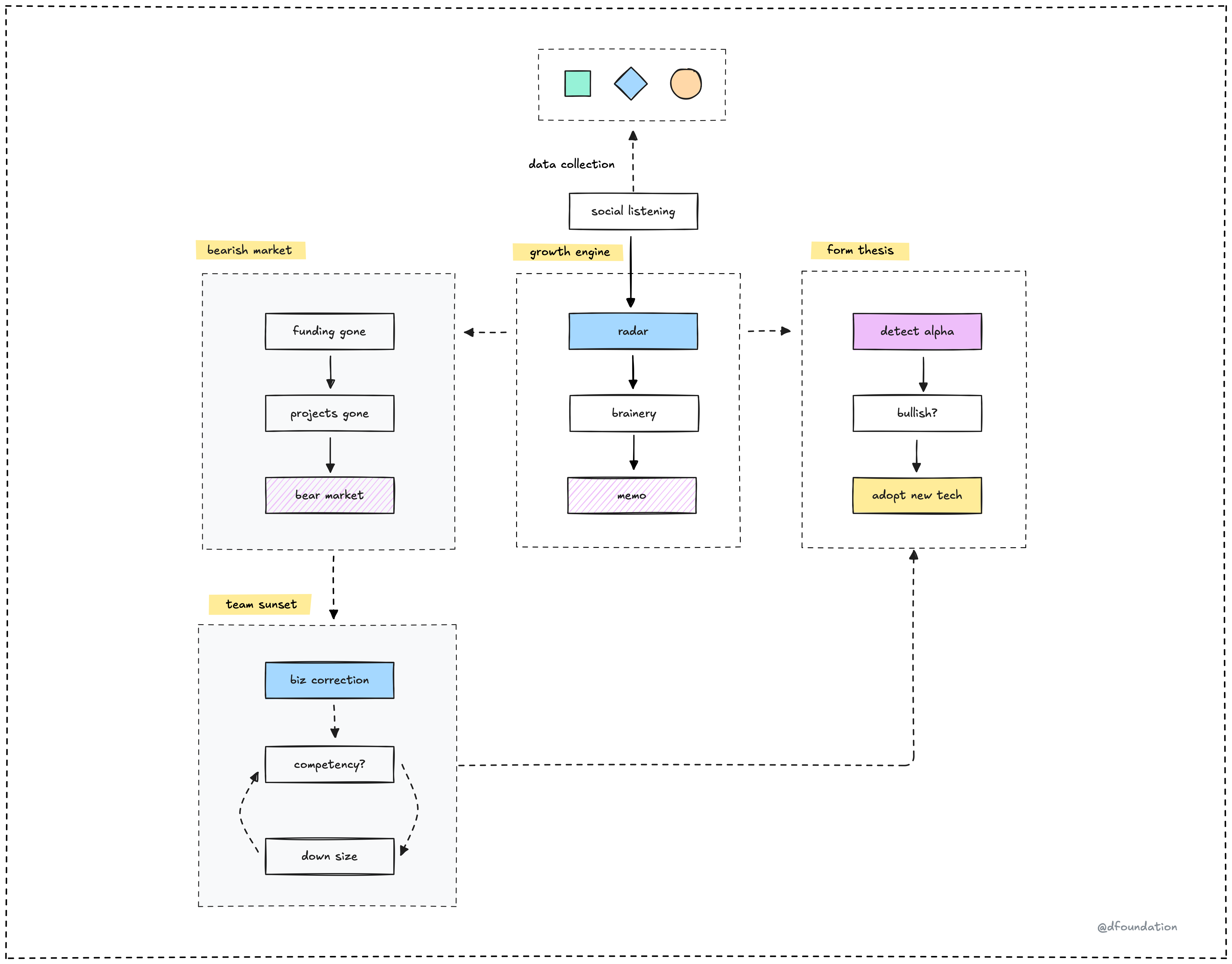tl;dr;
Forming a market thesis means spotting trends with data and gut feel, asking if they fit our strengths and market potential, and monitoring signals. Past bets like Golang show how we position for the next wave.
Figure out where the market heads and how we fit in; that's the core of a market thesis. It's a firm belief, not a wild gamble, requiring groundwork, time, and team effort. Get it right, and we position ourselves for the next wave; get it wrong, and we learn.

Spot worthwhile pulses
Spotting a trend or "pulse" with real potential isn't simple. It's a mix of sharp analysis, deep experience, and sometimes, gut feel. Here's how:
Beyond the gut: the role of data and observation
- Data is a start, not the whole story: Data from sources like our growth engine tells us what goes on (hire trends, fund news, tech talks). But data alone needs context.
- Develop informed intuition ("the gut"): Your "gut" is your brain seeing patterns from experience. In early trends with thin data, keen observation is key. What do innovators and early adopters actually do and talk about? What shifts happen in niche groups or VC circles? Staying curious pays off.
Add layers of nuance: questions to ask ourselves
Once a pulse catches our attention, dig deeper:
- Problem-solution fit: Does this tech solve a real, big problem?
- Strategic alignment and our strengths: Does this fit who we are and what we're good at? Can we build the skills, or is there team energy to learn?
- Market potential and scalability: Is there a real market? Can solutions scale?
- The competitive vibe: Is it crowded, or can we bring a unique angle?
- Timing and ecosystem readiness: Is the world ready? Are base technologies mature?
- Resource reality check: What will it really take in time, people, and money vs the potential win?
This mix moves us from "interesting" to "this might be a serious thesis."
The upside
Getting a market thesis right unlocks real potential. Aligning our strengths with market needs creates opportunities: developing valuable services/products, positioning ourselves ahead, building expertise, and attracting exciting projects.
A successful market thesis is a roadmap to growth and impact, allowing concrete plans:
- What can we build or offer?
- Who benefits most?
- Do we have the skills/resources, or can we get them?
- What's the timeline?
Answering these clarifies the tangible benefits.
Monitor social signals
The tech world buzzes with "tiny pulses" (new ideas, projects, companies). Some fade, a few become big waves. We see energy in areas like advanced AI automation, platform ops (DevSecOps, LLMOps), blockchain's move to finance, and spatial computing. Check pulses against your thesis.
Past theses and lessons learned
We learn from past bets:
- Mobile app development
- Strategic shift from Ruby to Golang
- Infrastructure evolution: Ansible > Docker > K8s
- Fuchsia OS (didn't pan out)
- Rust (we skipped)
- Elixir (didn't get traction)
- Blockchain dapps (market shifted)
Areas like deeper AI automation and spatial computing are on our radar.
Case study: Golang adoption
My Golang bet is an example. As an engineer, I studied languages. Go fixed many pain points and had potential for concurrent systems. I helped build the Golang Vietnam community, which gave real-world signals. Go delivered; we built a strong team and worked with top companies, proving the thesis right.
Resources
- Understand the value chain
